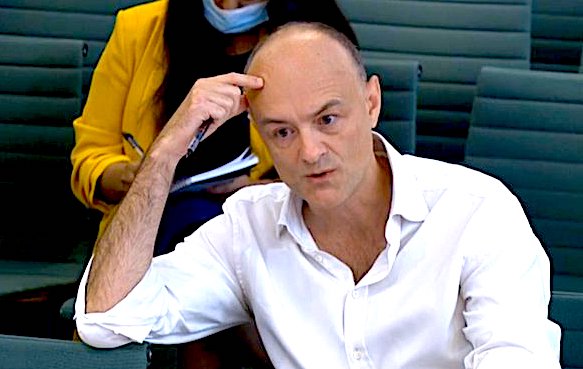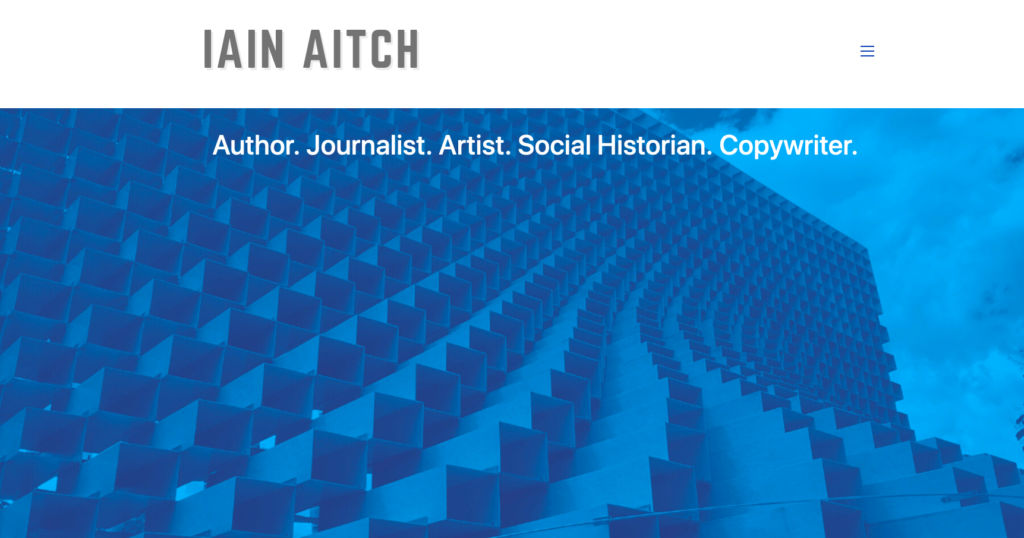-
Dominic Cummings is not a genius, he’s a very naughty boy

Dominic Cummings is one of the least trusted voices in the UK, or he certainly was this time last year, when he was sat in the Rose Garden at Number 10, explaining his unorthodox methodology for eye tests. But we can be sure of one thing that came from his mouth yesterday, and that was the fact that he is not a genius. He did, however, display some extensive knowledge of advanced pranksterism.
Cummings’ revelation about his lack of genius came when he spoke about the lack of quality at the top of the Government, including the Prime Minister. Cummings talked himself down, saying he had never achieved anything great. An attempt at false modesty, perhaps. An attempt to lay out a qualified mea culpa, certainly. But in an attempt to damn those around him, Cummings revealed a real truth about his limits.
There is little doubt about his abilities as a disruptive strategist, although there are many about his ability as a PR man. His leaking of stories in dribs and drabs over the last fortnight has not been handled spectacularly well. It also left little in terms of surprise or revelation for his big day in front of the committee (and, more importantly, the cameras). 5/10. He ended on a mumbled ‘no’ (about whether the PM was competent) rather than a mic drop.
Cummings did, however, do two things spectacularly well. The first was obvious, and that was to sew discord. Tossing that imaginary grenade, like a character from The Office. Pulling out the pin and letting chaos reign was seen as his style (hyped by himself) inside Number 10.
But Cummings doesn’t simply create an explosion, he offers up the contract for the clean-up. In this case, both Raab and Sunak were spared his ire and were instead praised for their efforts. Whether a collaboration or simple mind games, this was a really effective way to ensure disharmony inside the cabinet. This may be sheer nihilism, as Cummings claims that he doesn’t want another job inside a future administration. But it showed a clear strategy, rather than simple mud-slinging.
The other thing that Cummings did well can only be described in terms of ‘pranksterism’, specifically second staging pranksterism. In brief, this refers to opening up an organisation for questions to which you then respond or laying bear traps for your quarry to fall in to. A case in point is the endless referring back to the possibilities to sack Matt Hancock. This means that the PM looks weak and culpable if he does now sack him, weak and uncaring if he does not. It is a no-win situation.
Second staging is a powerful tactic when used well. But it requires great skill to execute efficiently. It is something that political campaign pranksters such as the Yes Men have used to great effect. In their version, they set up a fake corporate happening or, even better, impersonate a real company executive and let their victims believe that is the extent of the tomfoolery. It is embarrassing, unseemly and requires an immediate statement, often with an apology attached.
Of course, dressing up as the Executive Chief Vice Under President of Directorships at Widgets Corp and giving an off-kilter speech is not the pay off. The pay off comes when the company rushes to disown that presentation, as planned. But, just as they recover from being flattened by a falling piano, then a truck full of anvils lands upon them. Cummings was last seen backing such a truck up to the rear entrance of Number 10.
Cummings’ twist is that the victims don’t know which barbs come with a second stage attached. They may answer one accusation with a denial, only to be shown the smoking gun in the weekend’s papers. They may even offer a denial for something that was simply a throw away remark.
Of course, in this case the pay-off is not in the hands of Cummings himself. It requires Parliamentarians and the media to act upon his earlier work. They have to spot the clues, join the dots and pull at the threads. That demands time, care and effort. Will those charged with carrying out his aims take up the challenge? We can only watch and wait.
-
Longing for an answer. Just how long should an SEO article be? Or a headline for that matter.

Search engine optimisation has long been hailed as a mysterious science clients and copywriters/SEO experts alike. Businesses want in on the secret of just how many words and/or keywords will magic them above that £5bn megacorp for their desired search term, copywriters and consultants want to promise that they can probably do that. And so it goes on.
It does not help that Google (for it is they we must all bow to here) keeps moving the goalposts, like a particularly jumpy groundsman/woman. Just as you come up with a formula that seems to work, Google changes their criteria. Once, keywords were king, they even toyed with author authority. The short answer is usually that paying helps. After all, that is the Google business model.
Still, we all like to have the belt and braces of both paid and organic search. So we sit up straight, pay attention and try to adapt. We shorten our sentences. We try to make sense. We don’t flood the copy with keywords. Green smiley faces welcome us in our Search Engine Optimisation software plug-ins. Phrase used twice. Thumbs up for 2021 content.
Until recently, the common knowledge among both business and copywriters was that blogs of around 400 words were the killer SEO must-have. Okay, so some say it was 350 words and some say it was 500 words. But we were all in the same ball park.
There was a lot of wishful thinking here. As business knew that 400 words was relatively inexpensive and writers knew they could say that two 400 word blogs represented a day of labour, when they may well be able to squeeze in three, or even four if they tried hard/didn’t try at all. The truth, was somewhat different. And now it seems it is totally different.
Next year it will be different in a different way. And so on.
The considered correct length of articles is now long. Very long. Your 400 word blogs do not cut it here. Better to stitch six together, as you need something above 2,000 words for an article to have super-authority. We want scholarly, but not too scholarly. This is SEO, not academia. Unless you are doing SEO for academia, in which case I wish you luck.
As ever, there are cautions, conditions and exceptions. But it does seem that most people get better results with longer blogs. This does not mean that you should abandon and burn your 400 word posts. Just that you should maybe mix them up with quality 2,500 word blogs that are essentially long reads. That is they are in-depth, offer new learning and could really be split up into three or more posts.
You want shares of snippets, chunks of your wisdom to be shamelessly stolen on social media and the odd line that ends up over an inspirational picture of a kitten on Facebook. If it inspires a TikTok dance video, then so much the better.
Of course, for any of this to happen, what you need is a decent writer, or even a roster of them. You also need to give them time to go away and write something that is worthy of being published in 2,500+ words. No one is going to read your screed and park themselves on your page if you just deliver them 2,500 words of drivel. More writing does not mean less quality. If that were true we would be back to the days of thousands of keywords in white text on a white background.
Most of all, you need to have a reason to publish an article in the first place. If it is neither informative, interesting or useful then you would be better off not bothering. Even SEO robots get bored you know.
-
Identity crises

I first set up THIS IDEA to differentiate my copywriting and ideas work from other written or visual work that I do. There was also the fact that my other website was the online equivalent of the cobbler’s boots. Full of holes, as I had been too busy working for others.
I have finally updated my comprehensive website and it details my work as an author, journalist, social historian, artist and copywriter. From Margate writer Iain Aitch to London social historian Iain Aitch, with everything in between.
As I say on the website, I am still very much a writer. It permeates all that I am and all that I do. But go and have a look at iainaitch.com and I am sure you will find articles or arts projects that you will enjoy.
Obviously, some of my copywriting work crosses over with my journalism work, so you will find articles on education, technology, the arts, campaign groups, construction and architecture alongside more esoteric topics.
Let me know how you like it.
-
I hate Zoom. Let’s do a Zoom

In lockdown, no one can hear you scream. Especially if you are on mute.
While Zoom/Teams meetings seemed like a joyous liberation back in March 2020, they now seem like a special kind of torture. I avoid them if I can.
BUT, I am now willing to jump back in. So long as you put your deck to one side and quit PowerPoint. Promise? Okay.
The one thing I am hearing from those who work in offices is that creativity is at an all-time low. Ideas are not flowing, due to the lack of chat around the coffee machine or the Friday lunchtime session in the pub. No one is moving, so no one is scribbling down that idea in the back of the cab or inspired by that thing they saw on the Tube. Everything is still.
So, the idea is this. A genuine expert in ideas, talking to or with your team (or just you) to make sure that these ideas happen. To give you a springboard to dive off, inspiration to work with and a shovel to dig yourselves out of that hole. It can be focussed, unfocussed or just plain brainstorming in the wild.
45 minutes, I throw in ideas, you throw them back. We see where you are stuck and what you can do next. 15 minutes of feedback, questions, reflections and we are done. One fee fits all. One-to-one or one-to-fifty. No obligation to work with me further. Simply contact me on iain@thisidea.co.uk until the end of February 2021. It’s probably less than your average Pret bill for a lunch meeting.
Come on now, don’t tell me you’re missing Pret…
-
How does ideas consulting work? And can I afford it?

I recognise that simply having ideas is a job that some people just do not get. And that includes clients. Not the best record for someone in communications, you may think…
The truth is that having ideas for business, charity or campaign groups for a living comes under the ‘it’s complicated’ category of relationships. It is whatever you want to make it. And by ‘you’ I mean the (potential) client.
To avoid a TL;dr situation, I shall break down the most basic way in which I work with a business. This is often the introductory piece of work. It may be the only piece of work, or it may lead to an ongoing relationship that involves anything from copywriting to re-branding, tone-of-voice to user experience, essays, features, publicity or blogs.
It goes like this. You hire me for two days.
Day one is me finding out everything I can about you, your company/campaign, your ethos, your needs, your lacks, your strengths, your appeal.
Day two is me, sat with a notepad , having ideas. Now, these could be ideas for how to improve copy, how to get publicity for next-to-nothing, how to make a team work more efficiently, how to re-brand or how to get your product or campaign noticed more. You can have it as a brain dump or something tied up with a bow. You can have the unexpurgated, dirty version, or a clean one, with the expletives and dangerous ideas excised.
Obviously, the whole thing is a moveable feast. You can add days to the research of the ideas part. But those are the basics. Get in touch to find out how this could work for you, your business or your campaign.
I can provide you with a long list of those who have done just that and not regretted it. Email me…